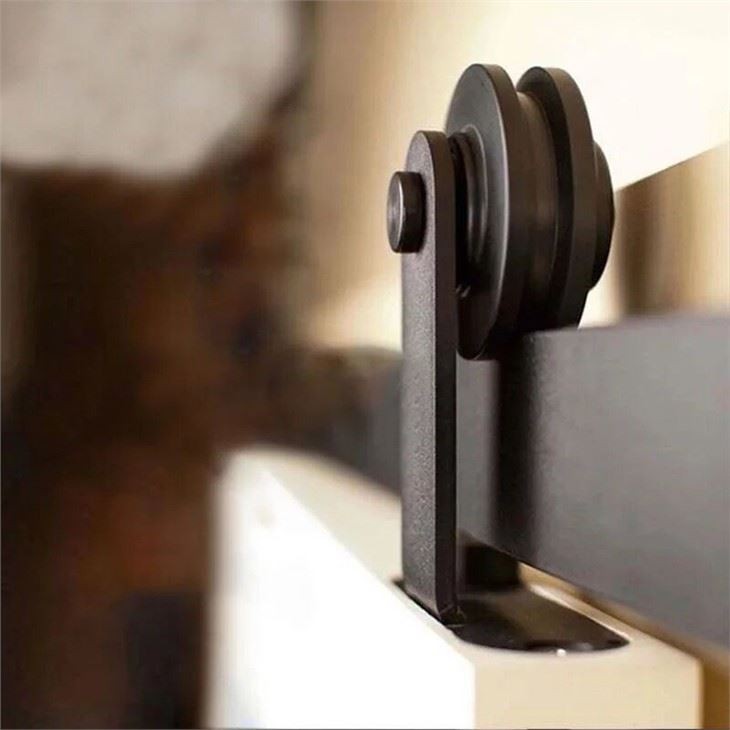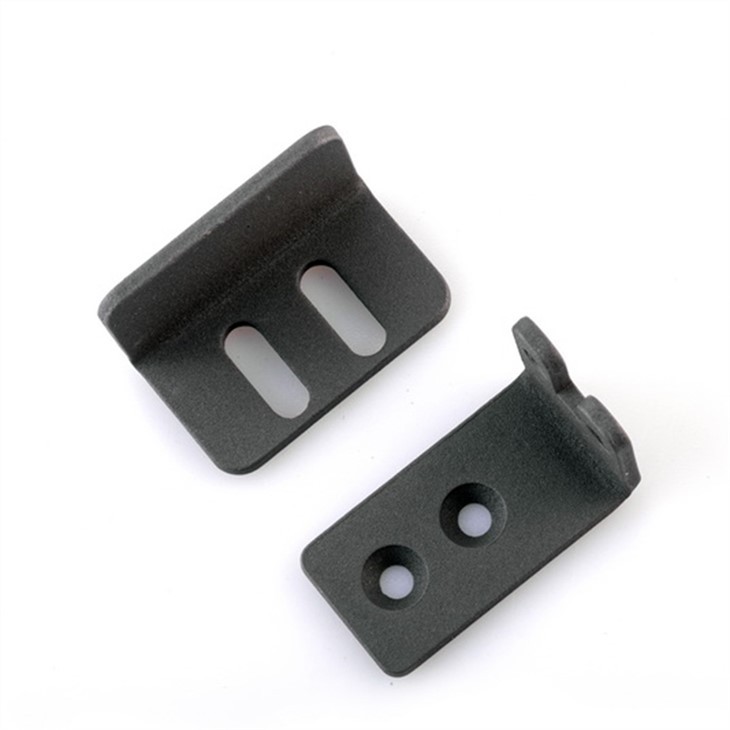What is the thickness of the steel used in barn door hardware?
 Oct 15, 2025|
Oct 15, 2025| Hey there! I'm a supplier of Steel Barn Door Hardware, and today I wanna chat about something that often gets overlooked but is super important: the thickness of the steel used in barn door hardware. You might be thinking, "Why does the thickness matter?" Well, stick around, and I'll break it down for you.
First off, let's understand why steel is such a popular choice for barn door hardware in the first place. Steel is strong, durable, and can withstand a lot of wear and tear. It's also resistant to rust and corrosion, which is a big plus, especially if your barn door is exposed to the elements. Whether you're using it for a rustic farmhouse or a modern urban loft, steel barn door hardware adds a touch of industrial charm while getting the job done.
So, back to the thickness. The thickness of the steel used in barn door hardware can vary quite a bit, and it depends on a few factors. One of the main factors is the size and weight of the door. A heavier door is gonna need thicker steel hardware to support it properly. If you use hardware with steel that's too thin, it might bend or break under the weight, which can be a real safety hazard.
For smaller, lighter doors, you can usually get away with using hardware made from thinner steel. Maybe around 1/8 inch to 3/16 inch thick. This type of hardware is more affordable and still provides enough strength for doors that aren't too heavy. It's a great option for interior doors in homes or small offices.


On the other hand, if you're dealing with a large, heavy door, say a solid wood door that's several inches thick, you'll need hardware made from thicker steel. I'm talking 1/4 inch or even thicker in some cases. Thicker steel can handle the extra weight without flexing or warping, ensuring that your door slides smoothly and safely for years to come.
Another factor to consider is the type of hardware you're using. For example, the Sliding Barn Door Rail System is a critical part of the setup. The rail needs to be thick enough to support the door as it slides back and forth. A thin rail might not be able to handle the constant movement and could wear out quickly. A good rule of thumb is to use a rail made from at least 1/4 inch thick steel for heavy doors.
The Sliding Door Hardware Black is also important. The black finish not only looks cool but can also provide an extra layer of protection against rust. When it comes to the thickness of the steel in this hardware, it should be thick enough to hold up the door and resist any damage. You don't want the hardware to chip or peel easily, so a decent thickness is key.
And then there's the Barn Door Floor Guide Wall Mount. This little guy helps keep the door in place as it slides. It needs to be made from sturdy steel to withstand the pressure and friction. A thickness of 3/16 inch or more is usually a good choice for floor guides.
Now, you might be wondering how to tell if the steel in the hardware is thick enough. Well, one way is to look at the product specifications. Reputable suppliers will usually list the thickness of the steel in the product description. You can also ask the supplier directly if you're not sure. Another way is to physically inspect the hardware if possible. A thicker piece of steel will feel heavier and more solid in your hand.
It's also important to note that the quality of the steel matters just as much as the thickness. High - quality steel will be more resistant to corrosion and have better strength properties. So, when you're shopping for barn door hardware, make sure you're getting it from a reliable supplier who uses good - quality steel.
In addition to the size of the door and the type of hardware, the environment where the door will be installed also plays a role. If the door is going to be in a high - traffic area, it'll need more durable hardware. The constant opening and closing can put a lot of stress on the hardware, so thicker steel is a better choice. Similarly, if the door is in a humid or salty environment, like near the ocean, you'll need hardware made from thicker, corrosion - resistant steel to prevent rusting.
When it comes to installation, thicker steel hardware might require a bit more effort. You'll need to use stronger screws and anchors to attach it to the wall or floor. But the extra work is worth it because it'll ensure that your door is installed securely.
So, to sum it all up, the thickness of the steel in barn door hardware is a crucial factor that can affect the performance, safety, and longevity of your door. Whether you're a DIY enthusiast or a professional contractor, it's important to choose the right thickness of steel based on the size of the door, the type of hardware, and the environment.
If you're in the market for high - quality steel barn door hardware, I'd love to help you out. I've got a wide range of products with different steel thicknesses to suit your needs. Just reach out, and we can have a chat about what'll work best for your project. Whether it's a small interior door or a large exterior barn door, I've got the hardware to get the job done right.
References:
- General knowledge of steel properties and barn door hardware requirements.
- Industry standards for steel thickness in door hardware applications.

